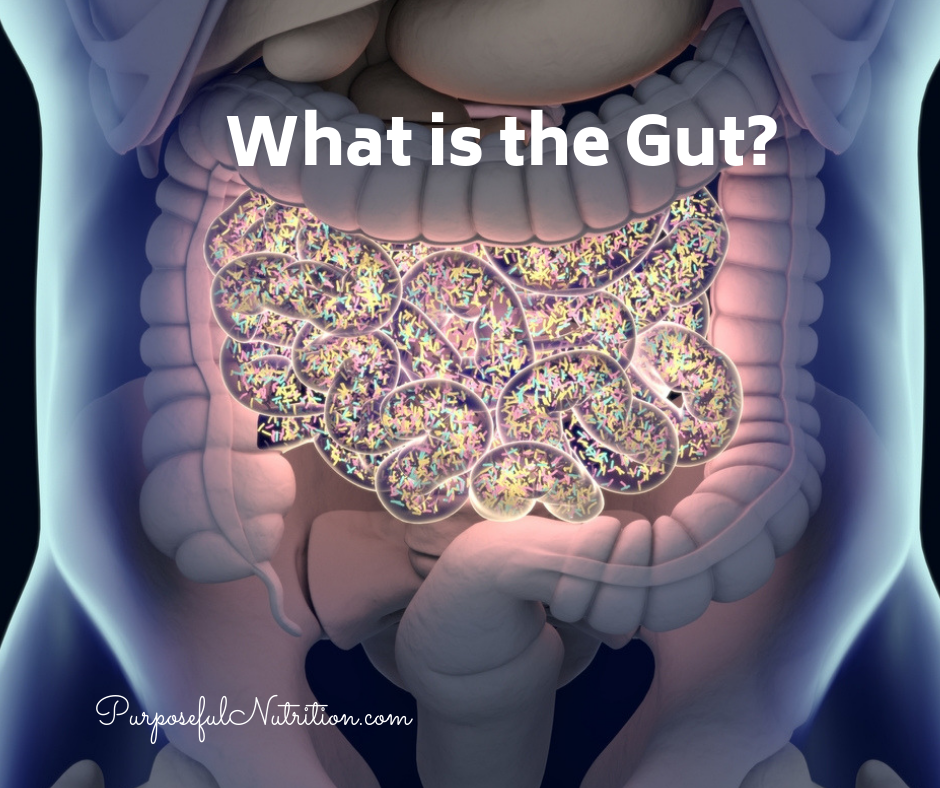This post may contain affiliate links which won’t change your price but will share some commission.

All human beings have bacteria in and on their body. In fact, research has shown that the human body is composed of more bacteria than cells. A healthy human body is actually swarming with microorganisms inhabiting every nook and cranny on the body. It is in our gut, the gastrointestinal tract, that we can find the largest collection of microorganisms. And our gut health is key to the health of the rest of our body.
These microorganisms are a community and as such make up our gut microbiota. Combine the microbiota, the products it makes, and the entire environment it lives within and we have a microbiome. The human microbiome (all of our microbes’ genes) can be considered a counterpart to the human genome (all of our genes).
Every human being has a gut microbiota and the composition for each person is unique. Regardless of the composition, the microbiota has the same physiological functions with a direct impact on the health of the human body.
Some of the gut functions:
- Helps the body to digest certain foods that the stomach and small intestine haven’t been able to digest.
- Involved with the production of vitamins B and K.
- Helps the body combat other microorganisms that would others harm the gastrointestinal tract.
- Plays an important role in the immune system, primarily by performing as a barrier.
- A healthy and balanced gut microbiota is key to ensuring proper digestive functioning.
- Is closely connected to brain health, affecting mood, clarity of thinking, and attention.
These are vital and important functions of the human body and the immune system. Some researchers have said that up to 90 percent of all diseases can be traced in some way back to the gut and health of the microbiome.
Poor gut health can contribute to many diseases and disorders like leaky gut syndrome, autoimmune disease, arthritis, dementia, heart disease, and cancer. Surprising to many is the fact that health, fertility, and longevity are reliant on the balance of organisms and bacteria living within the gut.
Scientists have begun to draw links between the following illnesses and the bacteria in your gut:
Obesity, type 2 diabetes, and heart disease: Your gut bacteria affects the body’s metabolism. They determine how many calories you get from food and what kinds of nutrients you receive. Too much gut bacteria can make you turn fiber into fatty acids. This can cause fat deposits in your liver, leading to something called metabolic syndrome – a condition that can lead to type 2 diabetes, heart disease, and obesity.
Inflammatory bowel diseases (IBD), including Crohn’s disease and ulcerative colitis: It’s believed that people with these conditions have lower levels of certain anti-inflammatory gut bacteria. The exact connection is unclear, but researchers think that some bacteria may make your body attack your intestines and set the stage for these diseases.
Mental Health: According to the American Psychological Association (APA), gut bacteria produce an array of neurochemicals that the brain uses for the regulation of physiological and mental processes, including memory, learning, and mood. And, 95% of the body’s supply of serotonin is produced by gut bacteria. Which means that gut bacteria have been associated with a number of mental health problems that include anxiety disorders and depression.
Every human being shapes their own microbiome, which in turn adapts to changes in their environment. For example, the foods that are eaten, sleeping patterns, the amount of bacteria the person is exposed to every day, and the level of stress the person lives with all help to establish the state of the gut microbiota.
What you can do
Which brings us to the good news: you can affect your microbiome through diet, physical exercise, sleep, and stress management. Depending on the symptoms you are experiencing, your microbiome could need a minor adjustment or a major adjustment. Sometimes, just knowing that you really are in control of your gut health is enough to start you on the path to improving your gut health.
A healthy diet can encourage the presence of good gut bacteria. Consuming fermented foods – such as miso and sauerkraut – increases the level of fermenting bacteria in the gut. In addition, fruits and vegetables contain fibers and sugars that can boost the health of gut bacteria.
And, eating probiotic-rich foods and taking a daily probiotic supplement also help to put good bacteria into our bodies. Probiotic and prebiotic-rich foods include live-cultured yogurt, kimchi, sauerkraut, pickles, miso soup, apple cider vinegar, dark chocolate.
I have developed a full module on gut health as part of the Fit and Fabulous After 40 E-Course. You can sign up to take this course at any time. To schedule a 20-30 minute discovery consult regarding your gut health and to see if I can help you achieve healing of your gut and microbioime, please contact me through my email or the 10to8 scheduling app.

Leave a Reply